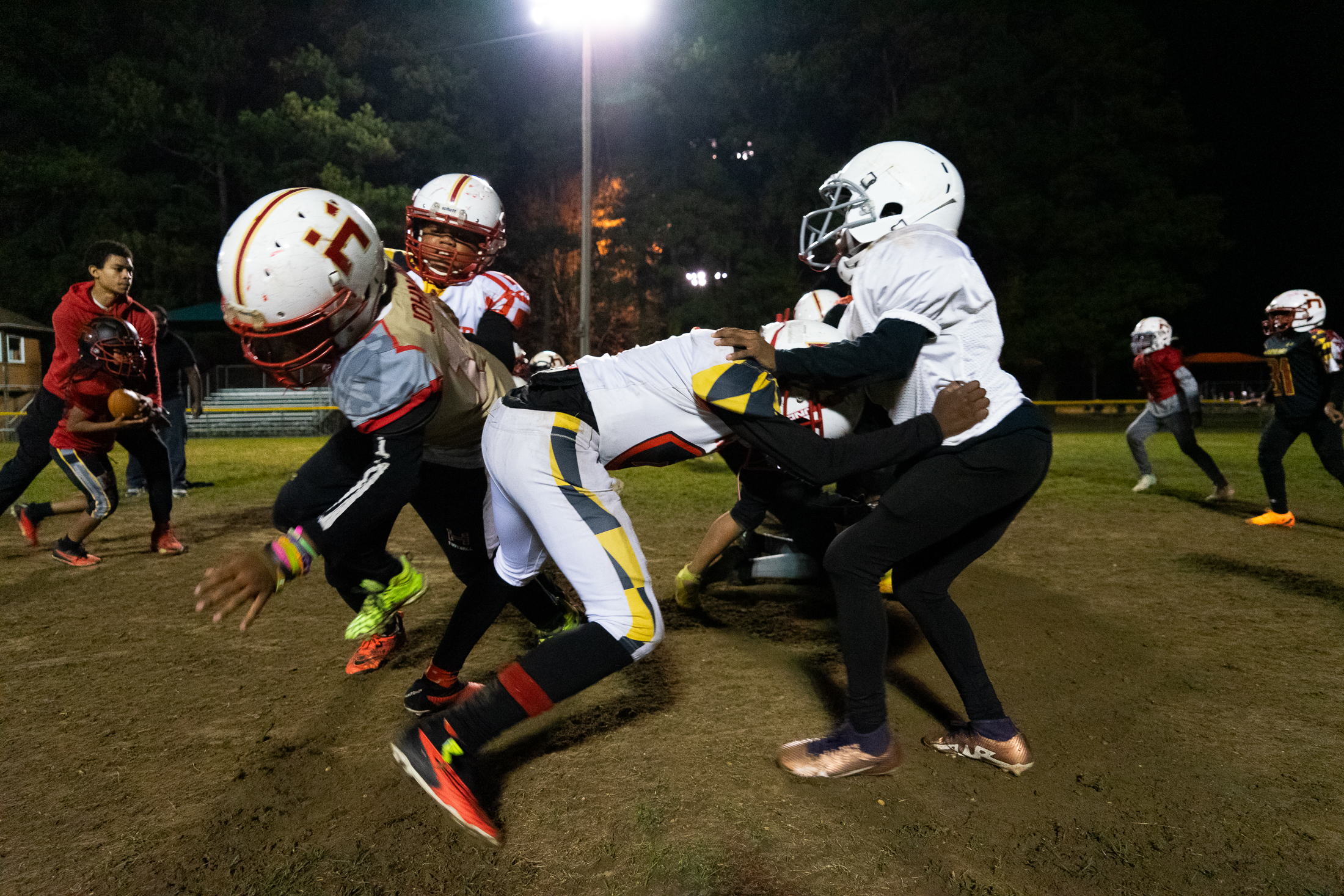COLLEGE PARK — Youth participation in tackle football has been declining for years as medical studies have linked the sport with brain injury and long-term behavioral issues.
“Youth Tackle Football: Balancing risks and rewards depends on race and place” — a four-month investigation published Tuesday by student journalists at the University of Maryland’s Shirley Povich Center for Sports Journalism and Howard Center for Investigative Journalism — probes how the risks and rewards of the sport are weighed.
The project was led by Povich Center Director Mark Hyman through his Fall 2023 capstone at the UMD Philip Merrill College of Journalism. It was done in partnership with PBS NewsHour, which aired a Feb. 13 segment produced by Merrill College student journalists. The six-story project was published by Capital News Service, Merrill College’s student-powered news outlet, and was distributed nationally by The Associated Press. It was also featured on NPR's "All Things Considered" on Feb. 8.
Students interviewed dozens of parents, coaches, youth players, medical researchers and former pro football players, and the Povich and Howard centers worked with Ipsos to conduct an in-depth national public opinion poll of parents. That allowed them to put together a comprehensive illustration of how youth tackle football is viewed today.
The poll found:
- Black parents are more likely than white parents, by substantial margins, to believe youth tackle football could lead to a college scholarship or an NFL career. Hispanic parents are also far more likely than white parents to see college scholarships and pro careers as a potential benefit of youth football.
- Nearly one in four Black parents said the appropriate age for children to start playing tackle football is 9 years old or younger. Only 14% of white parents answered that children should start at age 9 or younger.

“This is perhaps the deepest look to date at how parents weigh risks and benefits of youth tackle football at a time when we’re learning more about the health risks, particularly for the youngest children,” Hyman said. “The benefits of youth tackle football are real — exposure to teamwork, discipline, even a chance for a college scholarship or pro career. But at what cost?”
The Povich and Howard centers also conducted a data analysis of the hometowns of more than 8,000 college football players competing for 68 teams that play in Power Five conferences, the top leagues in college football. Journalists working on the project used the data to locate cities and small towns that produce the most players per capita in the U.S., which helped them identify ideal places for on-the-ground reporting.
Reporters conducted interviews in Maryland and throughout the country. They visited Atlanta suburb Buford, Georgia, where players begin joining tackle football teams at age 5; and Lexington, Mississippi, which is located in the second-poorest county in the poorest state in the U.S. Lexington, with a population of fewer than 1,200, sends players to major college football programs at one of the highest per-capita rates in the country
“This project shows the power of marrying innovative data work with good reporting,” said Howard Center Director Kathy Best. “That’s one of the reasons we love collaborating with the Povich Center to push the boundaries of sports coverage to tell stories that illuminate issues important in people's lives and in communities.”
The project can be found at cnsmaryland.org/youth-football.
For information about publishing the project, contact Povich Center Director Mark Hyman at mhyman1@umd.edu or Howard Center Director Kathy Best at klbest@umd.edu.
